Encourage STEM (science, technology, engineering, and mathematics), serve as role models, change the narrative, be persevering, tell your story, become leaders, and be innovative were key messages delivered during an International Women’s Day event held March 8, at UN headquarters in New York. The high-energy celebration was a prelude to the 63rd Commission on the Status of Women, which began Monday, and which is focusing upon social protection, access to public services, and sustainable infrastructure for gender equality and the empowerment of women and girls.
Throughout the world, women gathered to celebrate. In the Democratic Republic, for example, staff at the center where Sr. Mary Felice, MD, serves, sent to Kinshasa for cloth to make special clothing for the day. They wore scarves provided by Sr. Marian Hamwey.
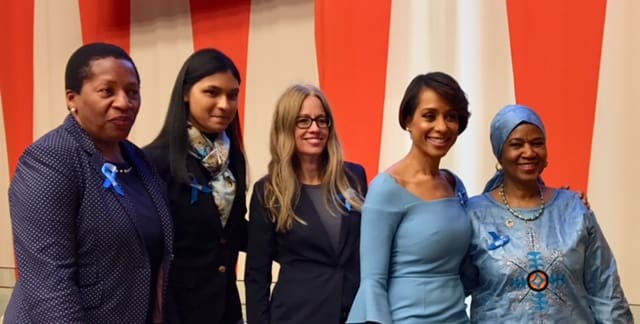
Through music, videos, and speakers, the International Women’s Day happening at the UN emphasized the theme, “Think Equal, Build Smart, and innovate for Change.” Drew Olivia Tillman had the audience clapping and singing “You’re going to hear me roar!” Other musical interventions were offered by opera and Broadway singers. But the real stars were women who had the courage to take risks, persevere, and break down barriers while pursuing their dreams.
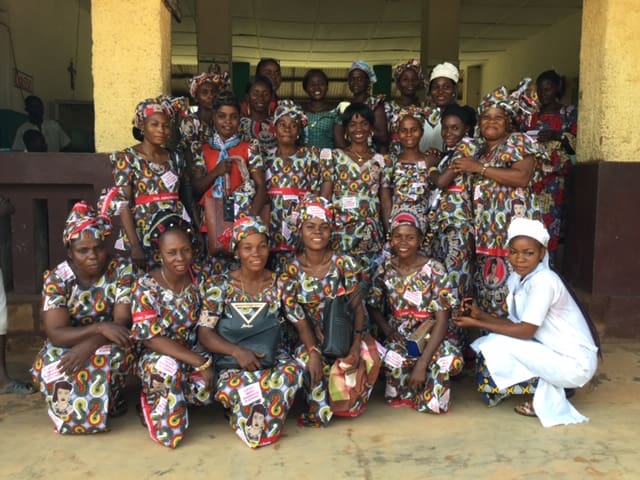
FORMER ASTRONAUT PROVIDES KEYNOTE
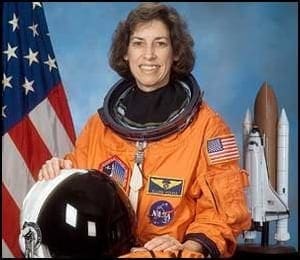
Photo Credit: NASA
Keynote speaker, Ellen Ochoa, was the first Hispanic woman to reach space. She is an engineer, former astronaut, and former Director of the Johnson Space Center. She also is a woman of perseverance. When turned down for the space program, she set about learning more, working harder, and becoming a research engineer at NASA. These efforts paid off when she was selected for the program on her second try.
Women and girls have a role to play in the fourth industrial revolution and education is key, she emphasized. She called for encouraging girls to pursue STEM education, particularly when they reach middle school and start hearing that math and science can be hard.
“Engineering, development and innovation is about curiosity, creativity, working with teams and solving problems,” she explained, saying “Girls love to do those things!”
GOOGLE SCIENCE FAIR WINNER OFFERS ADVICE
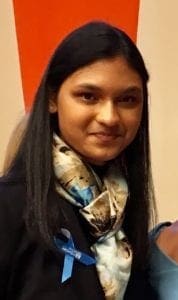 Kiara Nirghin, of South Africa, is an example of youthful ingenuity. She is the 2016 winner of the Google Science Fair grand prize. Using orange peels and avocados, she developed a low cost, biodegradable means of increasing soil’s ability to retain moisture, which makes a difference in parts of Africa which experience drought.
Kiara Nirghin, of South Africa, is an example of youthful ingenuity. She is the 2016 winner of the Google Science Fair grand prize. Using orange peels and avocados, she developed a low cost, biodegradable means of increasing soil’s ability to retain moisture, which makes a difference in parts of Africa which experience drought.
“I told my mom and dad at a young age that I wanted to change the world,” said Kiara. “They said, ‘That’s great! Let’s do it!’”
Kiara’s shared that inspiration does not present itself in one “big bang” moment. “It comes from a long time of failure, and not achieving what you want, and reexamining the drawing board, and finding something better,” she said.
Other inspiring women recognized included Lois Auta, who ran for public office in Nigeria in 2018 and is an advocate for inclusive legislation. Alice Marie Johnson, speaks out on criminal justice reform in the US. Lydia Cacho, of Mexico, is a human rights activist who addresses violence and sexual abuse against women and children. Theresa Kachindamoto, of Malawi, works against childhood marriage and female genital mutilation. And Asha Kowtal advocates for Dalit rights in India.
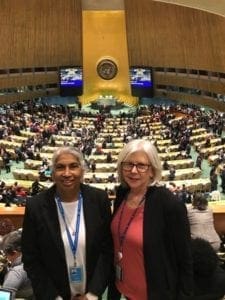 GENERAL ASSEMBLY LEADER—“WE ARE STILL NOT EVEN CLOSE TO EQUAL”
GENERAL ASSEMBLY LEADER—“WE ARE STILL NOT EVEN CLOSE TO EQUAL”
Nearly four decades since CEDAW (the Convention on the Elimination of all Forms of Discrimination Against Women) was adopted, and nearly 25 years since the Beijing Declaration and Platform for Action, we are still not even close to equal, commented General Assembly President Maria Fernanda Espinosa Garces, of Ecuador. Garces said that inequality is evident in the fact that 60 million girls have never set foot in a classroom, one in three women has experienced physical or sexual violence, women are behind in development, and women with disabilities are twice as likely to experience physical violence, and less than a quarter of parliamentarians are women.
“Every woman and girl knows that her lived reality is different than her father’s and her brother’s,” said Garces.
Garces called for boosting the number of women in leadership roles and further advocated for increasing support for grass roots organizations.
CSW CO-CHAIR CALLS FOR EIGHT “Cs”
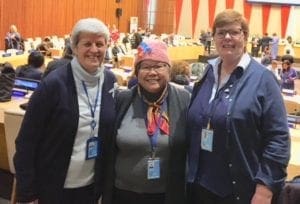 “Truth is, in the early days of the UN, women were few and far between in this building,” said Geraldine Byrne Nason, Permanent Representative of Ireland to the United Nations and Co- Chair of CSW 63. “It took quite some time for our voices to be heard and for our messages to register. Yet today, on International Women’s Day in 2019, there can be no doubt we are here to stay, center stage, and we have no plans to lower the volume!”
“Truth is, in the early days of the UN, women were few and far between in this building,” said Geraldine Byrne Nason, Permanent Representative of Ireland to the United Nations and Co- Chair of CSW 63. “It took quite some time for our voices to be heard and for our messages to register. Yet today, on International Women’s Day in 2019, there can be no doubt we are here to stay, center stage, and we have no plans to lower the volume!”
“Our future will become the past of other women,” said the Ambassador, quoting Irish poet Eavan Boland. “To ensure that this becomes a reality, we need to become trailblazers. For every step forward we take, there are some who seek to place a stone in our shoe, to slow us down. We must not be afraid. We need to push forward. Not walk, but run.”
She called for eight C’s. The first is providing equal opportunities for girls and boys in school curricula. Next, there needs to be greater dissemination of career information. The third is correct facilities to ensure girls attendance in school. (I.e. a toilet or a light along a road). She further called for helping women manage caring responsibilities with career paths. The fifth is child care services. The final C is capable role models for success. She would add to the six, confidence and courage.
EXECUTIVE DIRECTOR OF UN WOMEN—WOMEN ARE SOLUTION DESIGNERS
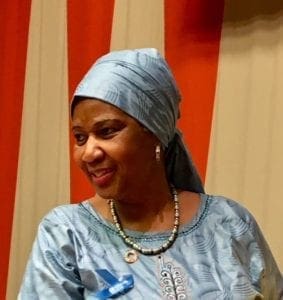 Phumzile Mlambo-Ngcuka, the UN Undersecretary General and Executive Director of UN Women, noted that women are not just consumers, but also solution designers. She expressed an interest in seeing more innovation in places which experience a lack of sanitation and hygiene facilities, financial exclusion, poor lighting in public places where violence and sexual assault is likely, and more.
Phumzile Mlambo-Ngcuka, the UN Undersecretary General and Executive Director of UN Women, noted that women are not just consumers, but also solution designers. She expressed an interest in seeing more innovation in places which experience a lack of sanitation and hygiene facilities, financial exclusion, poor lighting in public places where violence and sexual assault is likely, and more.
“We want innovation and the speed of change to intentionally benefit women and girls,” she said.
Inclusion is important in innovation in order to make sure that the solutions are most appropriate, Mlambo-Ngcuka said. She calls for improving innovation by including gender equality and a gender lens at the source of innovation. She also invited greater telling of real life stories about role models and using technology to amplify such stories.
“We need the giant leap that 21stcentury innovation can bring so that we can leapfrog,” said Mlambo-Ngcuka. She advocates for big data, mobile money, climate and clean water technology and applications, protecting the rights of women and facilitating access to justice.
SECRETARY GENERAL’S COMMENTS
“Nationalist, populist and austerity agendas add to gender inequality with policies that curtail women’s rights and cut social services,” said Secretary General Antonio Gutterres. “In some countries, while homicide rates overall are decreasing, femicide rates are rising. In others we see a rollback of legal protection against domestic violence or female genital mutilation. We know women’s participation makes peace agreements more durable, but even governments that are vocal advocates fail to back their words with action. The use of sexual violence as a tactic in conflict continues to traumatize individuals and entire societies.”
“Against this backdrop,” the Secretary General continued, “we need to redouble our efforts to protect and promote women’s rights, dignity and leadership. We must not give ground that has been won over decades and we must push for wholesale, rapid and radical change.”
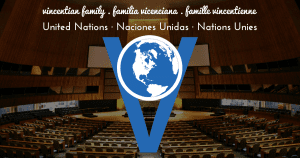







0 Comments